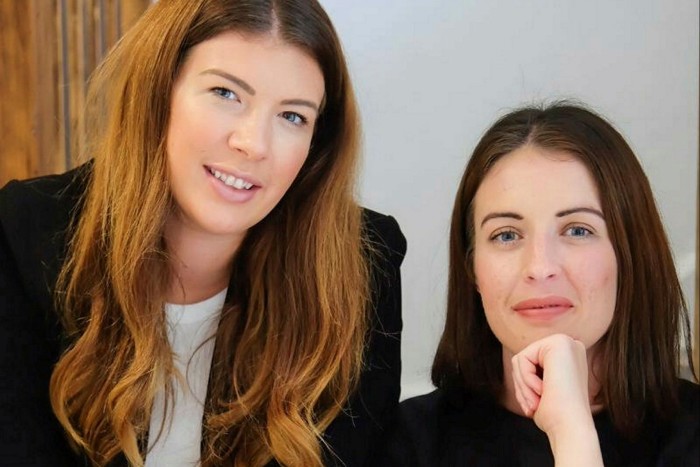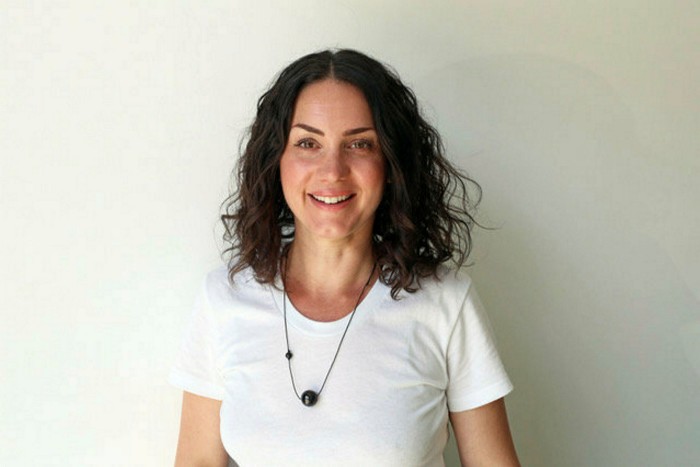Advice from female founders on starting your own venture

Roula Khalaf, Editor of the FT, selects her favourite stories in this weekly newsletter.
“In no other job would you be expected to, one minute, do financial modelling, the next minute, make a decision on marketing — and then the tech breaks, and you are fixing it,” says Laura Pomfret, co-founder of Financielle, an app that helps people — especially women — manage money better. “The pressure is quite high as a business owner.”
There are still some months when Pomfret and Holly Holland — her sister and co-founder — take no salary. And they are still in the middle of a slog to secure early-stage investment for the fledgling business.
But there are moments of exhilaration. “Last Friday, not only did someone say they would invest in us, but Holly managed to get us on Zoella — we’re going to do a takeover of her Instagram,” says Pomfret, referring to the social media platform used by British internet personality, Zoe Sugg.
Both Pomfret and Holland started out in regular jobs — Pomfret in brand sponsorship and Holland as a lawyer. Pomfret believes it was helpful to spend some time as an employee first, including at a start-up, to pick up some essential skills.

Today, the two are among an increasing number of women choosing to start their own businesses. In the UK, some 140,000 companies were led by all-female teams in 2021 — a record high, according to the Alison Rose Review of female entrepreneurship.
However, women can still struggle more than men to raise capital to expand their businesses. Women typically start with 53 per cent less capital than men and, across Europe as a whole, female founders have secured just 1.3 per cent of all venture capital funding available since 2017.
Even women with proven business acumen can find it difficult to attract backers.
Debbie Wosskow — now on her fourth business — is a female entrepreneurship success story. She co-founded her first company, Mantra PR, as a 25-year-old, with just £3,000. Her third business, Love Home Swap, a home exchange platform, made her rich when she sold it for $53mn in 2017. But she still finds it tricky to raise money — “even now, when I have a track record”.
Wosskow advises developing a wide network of contacts who can introduce aspiring entrepreneurs to potential investors, mentors and business partners.
“I’ve always had a lot of hustle and I have really focused on making my networks broad,” says Wosskow. As to why women tend to raise less money, she says: “If I were to pick one thing, it’s that our networks are not as good as men’s.”
She adds: “We have a lot of young women on our team and I always say to them: be in the room. Meet people, always be ready to come out of any situation with a new contact. I don’t know anybody who thinks, ‘Brilliant, I’m going to a networking event’ — but you have just have to flip the mindset around.”
A lack of networks was also cited as an obstacle for female founders by the Rose review.

Wosskow is trying to change that with her fourth business, AllBright, an education and networking organisation for women co-founded with Anna Jones, former chief executive of Hearst Magazines UK. That partnership came out of a chance meeting at a children’s birthday party.
However, the downsides of starting your own business can be painful. Just ask Bethany Koby, who had to close her educational toy company — Tech Will Save Us, founded in 2012 — after failing to secure a strategic funding round during the pandemic.
Although lockdowns had turned direct-to-consumer children’s educational materials into a red-hot market, Tech Will Save Us faced new rivals and higher costs for advertising on platforms such as Google and Facebook. Then a big children’s toy brand pulled out abruptly from plans to invest.
Attempts to find a buyer for the business fell through, too.
“I just cried,” Koby says. She sold the intellectual property and products and wound down the company. “My identity was so intricately connected to this business.”
Koby had started her career at brand agency Wolff Olins, but had always been drawn to entrepreneurship.
The experience of Tech Will Save Us has coloured her view of venture capital investors. “I’m not against VC funding but it added a layer of pressure and speed, and a requirement for exponential growth,” she says.

Nevertheless, Koby has started another business. Fam Studio also focuses on children’s education, but this time as a business building products and services for other companies. It means Koby can avoid taking external funding and expand the business at a slower, more sustainable pace.
Much of the work can be funded from customer contracts, while a few small investors are willing to take a very long-term view on when they will get a return.
Despite the setback, Koby says that running her own business is, above all, a way of staying true to her values. “There weren’t that many organisations that I thought really represent what I think the future of kids and families should look like,” she says. “So I did it again.”
Any other young woman who sees a problem not being addressed should do the same, she says: “I feel like business is such an important way for society to grow and develop and change the narrative.”
Voices of experience: tips from female founders
Network, network, network. “If you can meet influential people and convince them of your story and what you’re trying to build, they will bring others,” says Financielle’s Pomfret. Other founders can often be generous with time and advice.
Build your personal brand. Financielle started off as an anonymous Instagram page, but Pomfret and Holland later became the “faces” of the brand, which helped open doors to potential backers and customers.
Love the problem you are solving. “You shouldn’t go into entrepreneurship if you don’t 100 per cent love the problem you’re solving and feel some kind of intimate connection to it,” says Koby.
Sell the dream. Whether you are raising money or trying to win over a client, paint the big vision. “It is, unfortunately, true that women do tend to undersell,” says Wosskow. “That and not being confident with their financial numbers are the two biggest mistakes we see women frequently make.”
Practise your pitch. “Even Anna Jones and I would never dream of going into an investment board meeting without rehearsing every line,” says Wosskow.
Be scrappy. You can cobble together a website yourself and get a lot of your work done by external contractors at relatively small cost, says Pomfret. While many investors want to see a proof of concept for your idea, it does not have to be highly technical.
Venture capital is just one option. “There’s still a kind of glorified view of VC funding . . . you’re somehow validated,” says Koby. But there are many different ways of funding a start-up, including crowdfunding, bank loans, and bootstrapping — getting by on small sums generated in the course of building the business.

Comments